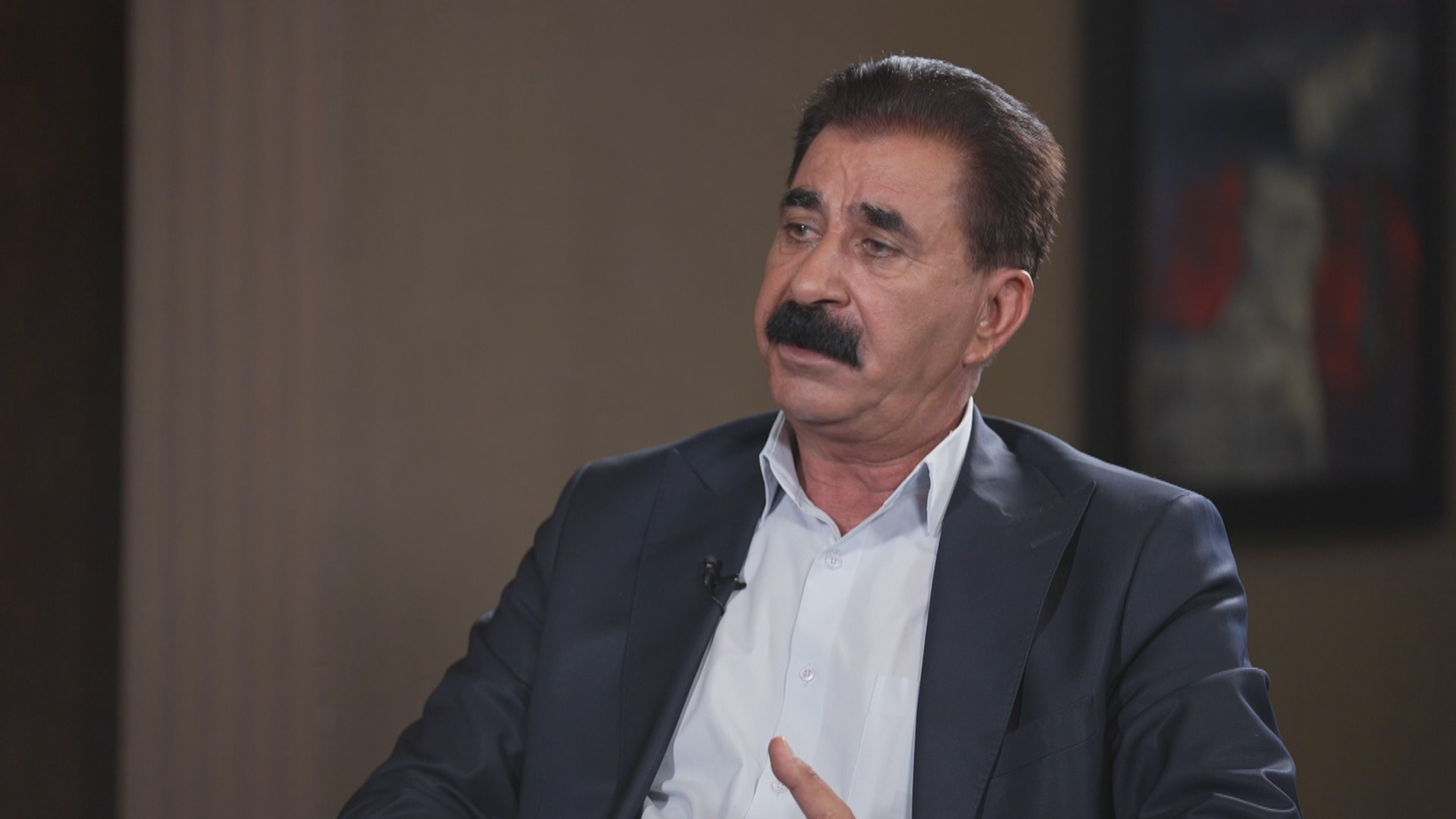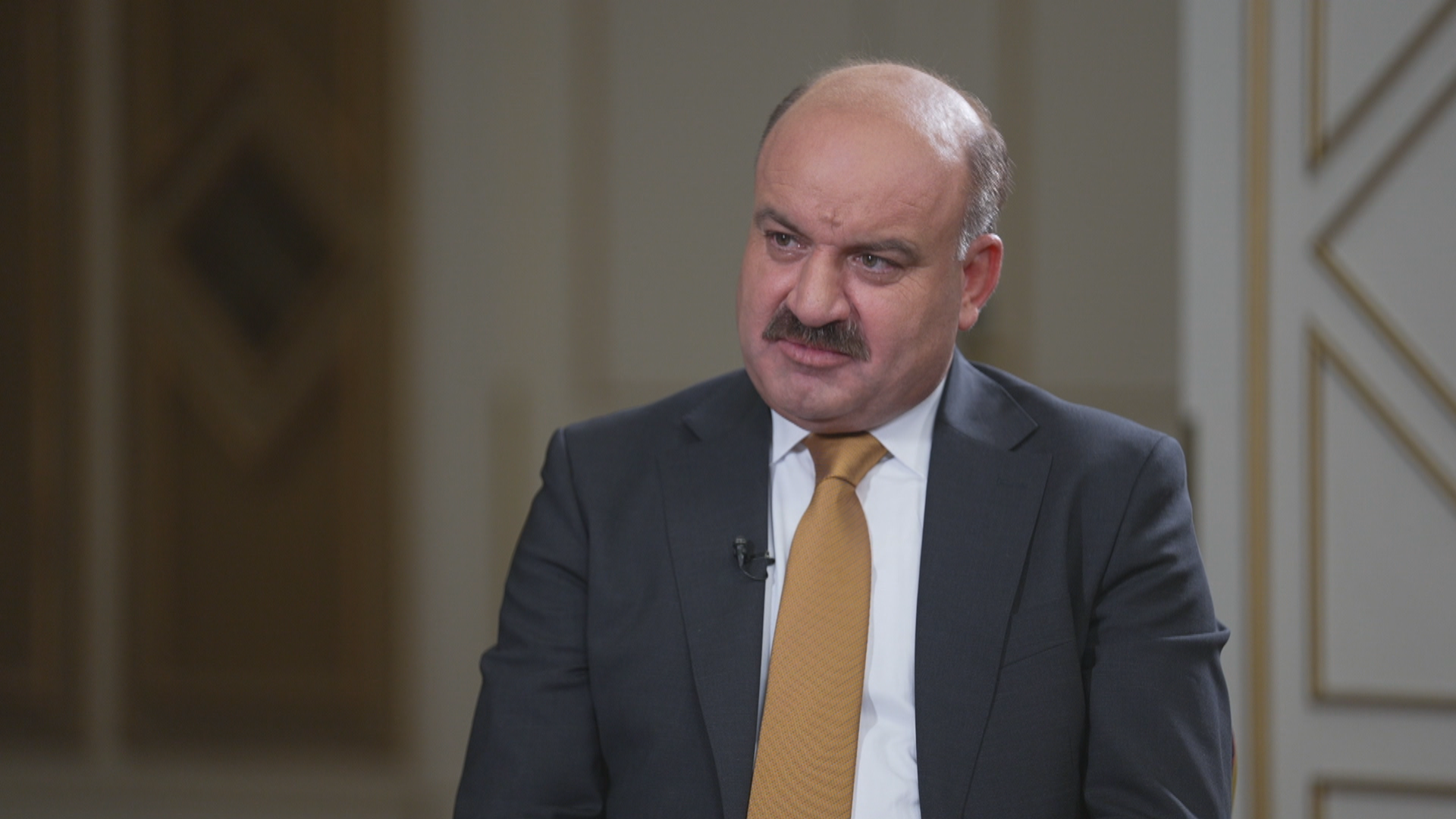ERBIL, Kurdistan Region - Approximately 40 percent of Shingal residents have returned to their homes since the town was liberated from the Islamic State (ISIS), according to local officials who blame political tensions for people's reluctance to return to the town.
The Yazidis in Shingal were subjected to countless heinous atrocities, including forced marriages, sexual violence, and massacres when ISIS captured the city in 2014, bringing destruction to many villages and towns populated by the minority group. The Yazidis were forced to flee to displacement camps across Iraq and the Kurdistan Region. The town was liberated from the group in late 2015.
Naif Saido, mayor of Shingal, told Rudaw on Wednesday that 60 percent of Shingal residents still live in IDP camps and houses in the Kurdistan Region, mainly in Duhok province. He blamed political and financial factors as well as the Iraqi government’s failure to rebuild those houses which were destroyed during the ISIS attack.

“It is not an improvement if you move from a tent to a tent,” he said.
“I believe that if people are compensated and their houses are renovated, 50 percent of those people who are still displaced will return. The main reason [behind their refusal to return] is that their houses have been destroyed. There is also the political factor, sourcing from political rivalries,” he added.
The mayor, who runs people’s paperwork from Duhok province, noted that many supporters of his Kurdistan Democratic Party (KDP) cannot return to Shingal, fearing reprisal.
There is a myriad of armed forces in Shingal with various allegiances, including the Kurdistan Region Peshmerga, pro-Iran Popular Mobilization Forces (PMF, or Hashd al-Shaabi in Arabic), and groups affiliated with the Kurdistan Workers’ Party (PKK). They gained footholds in Shingal after ousting ISIS.
Groups affiliated to the PKK and Hashd al-Shaabi are KDP rivals and they do not allow the mayor to work in areas under their control. They have appointed their own mayor but Baghdad and Erbil recognize only Saido.
Iraq’s migration and displacement has announced the return of several batches of Yazidi IDPs to Shingal. However, the Kurdistan Regional Government (KRG) officials have called the process a failure.
Baghdad and Erbil signed an agreement in 2020 to normalize the situation in Shingal but the deal has yet to be implemented. The United States has repeatedly called on the Iraqi and Kurdish government to “immediately break the political deadlock” in the city.
The mayor said that Article 140 of the Iraqi Constitution, which details the fate of the disputed areas, should be implemented before the implementation of the Shingal Agreement.
He also warned that many Shingal IDPs do not want to stay in the country.
“If they find a path, they want to go abroad. They, those in and outside camps, have no trust in Iraq. Most of them want to go abroad. Some people say that they do not expect Shingal to be secure without an international guarantee,” he said.
The United Nations has renovated hundreds of houses so far in Shingal, according to the mayor.
The United Nations Office for Project Services (UNOPS) said last week that it had implemented a project in Shingal to “rehabilitate damaged water facilities and associated infrastructure.”
The project, funded by an Italian agency, “included drilling two new wells up to 200 metres deep to reach the potable water aquifers. It also saw the rehabilitation of concrete distribution and collection tanks,” read the statement. “The work helped deliver essential water services to more than 1,000 households” in four villages.
Ali Omar, deputy governor of Nineveh for organisations and IDPs affairs, told Rudaw on Wednesday that UNOPS has established 330 houses in three districts of Nineveh province, including 96 in Shingal. UNOPS will establish about 1,000 houses by 2024. “It [the project] is not limited to houses but also infrastructure, schools and water projects.”

He, too, blamed political tensions for people’s refusal to return to Shingal.
Omar said 26,000 Shingal families, consisting of 130,000 people, live in the Kurdistan Region - equivalent to 60 percent of those who have fled the town.
“We all know that Shingal’s main issue is political. Shingal is the victim of its geography. Shingal is where intra-Kurdish, intra-Arabic, Sunni-Shitte, Arabic-Kurdish, Turkish-Iranian-American conflicts happen… The people of Shingal have fallen victims to these political conflicts,” said the deputy governor.
He blamed Erbil and Baghdad for failing to implement the Shingal Agreement, adding that many people are not happy with 30 percent of the deal.
A Human Rights Watch (HRW) report in June slammed Iraqi authorities for failing to adequately compensate thousands of Yazidi families who bore the brunt of ISIS’ atrocities.
Shahyan Tahsin contributed to this article.










Comments
Rudaw moderates all comments submitted on our website. We welcome comments which are relevant to the article and encourage further discussion about the issues that matter to you. We also welcome constructive criticism about Rudaw.
To be approved for publication, however, your comments must meet our community guidelines.
We will not tolerate the following: profanity, threats, personal attacks, vulgarity, abuse (such as sexism, racism, homophobia or xenophobia), or commercial or personal promotion.
Comments that do not meet our guidelines will be rejected. Comments are not edited – they are either approved or rejected.
Post a comment